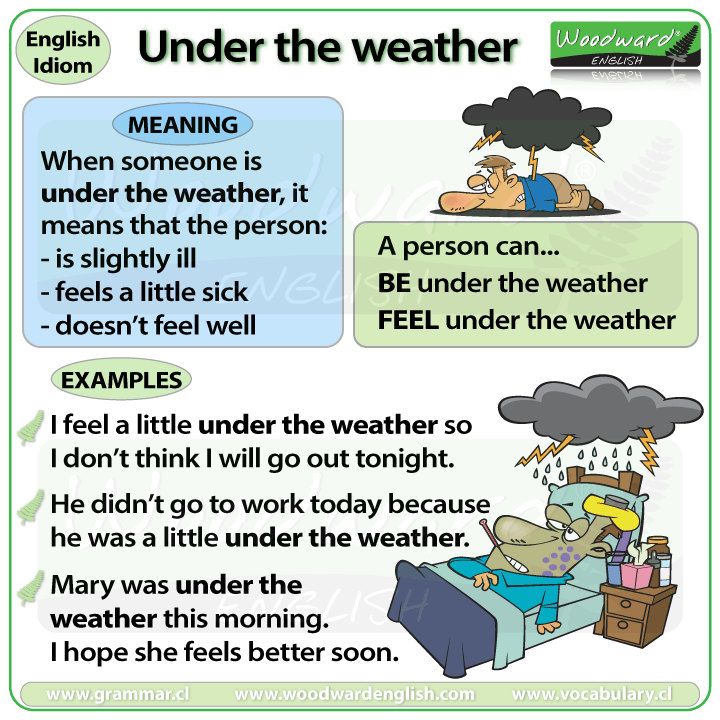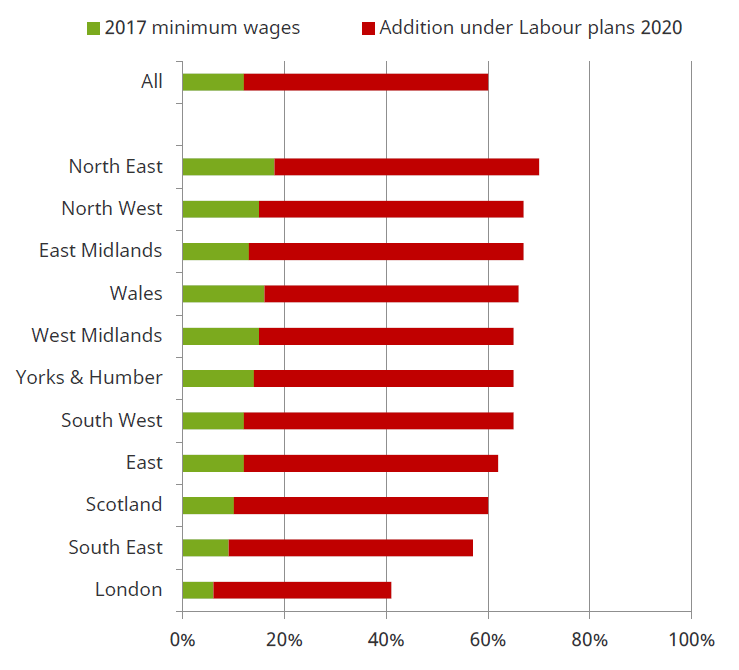The principles of cognitive load, components and clarity of instruction are particularly important for planning the learning of pupils with special educational needs and/or disabilities . Other reviews have already explored the benefits of explicit, systematic instruction and rehearsal of declarative and procedural knowledge for pupils with SEND. The specific curriculum adaptions that some pupils need will, of course, be highly contextual and there is no one-size-fits-all set of solutions.
It is also the case that some pupils with SEND may have enhanced musical perception, just as evidence suggests that some children who are blind may have enhanced working memory. We noted earlier the successes of blind mathematicians and they, alongside the many successful blind musicians, demonstrate how potential can be fulfilled when barriers are overcome. These examples highlight the importance of having high expectations for all pupils, understanding their strengths and needs, and implementing appropriate interventions, including using adapted instruments. In this review, we have focused on how the components of a music curriculum may be best learned in the classroom. While the composites that spring from them will often be more than mere sums of their parts, we have set out the worth of understanding these component parts.
Our understanding sits apart from one philosophical tradition of the mind, a tradition that looks back to Descartes and beyond in its view that 'the mind is entirely indivisible'. To understand the component parts of our wider understanding and capabilities, however, is to illuminate them, not to reduce them. Shining this light on the components of musicality is to liberate our pupils from some of the boundaries that constrain us before we gain more knowledge of the world.
In music, this enables pupils to perform the sublime creations of others, to explore their own creative potential and, through wider listening, to come to a broader understanding of musical culture and meaning. Our musical inheritances, as citizens of the UK and citizens of the world, stand among the great wonders of humankind. In making decisions about curriculum content, it is important to consider how the sequence of content develops pupils' musical knowledge and competencies over time. This review proposes 3 pillars as the basis for progression in the musical activities of performing, composing and listening/appraising.
A good music education is underpinned by robust, direct and incremental teaching that provides knowledge of music's technical and constructive aspects. This knowledge is learned in the context of music's history and provenance, allowing pupils to make increasingly sophisticated, expressive responses and gain musical meaning. Together, these pillars contribute to what could be described as 'musical understanding'.
Across the country, there are schools whose quality of musical education is world-leading and, in some cases, reaches professional standards. Reduced lesson time has been accompanied by lower levels of the staffing that would support a rich musical life. Adequate staffing levels not only support the curriculum but also the balance of formal and informal musical learning that can be so important for musical development. Classes of knowledge Examples Tacit – Tacit knowledge refers to the knowledge gained through experience that is often difficult to put into words. An awareness that the opening of Schubert's 'Erlkönig' is tense and dramatic, even without understanding the text or knowing about minor keys and triplet rhythms. Procedural – Procedural knowledge is the knowledge exercised in the performance of a task.
Declarative – Declarative knowledge refers to facts or information stored in the memory. Factual knowledge about eras, styles, composers or performers, as stated in a written essay about musical culture. This review notes that pupils may forget a lot of what they learn after their first encounter.
Consolidation is therefore essential for newly learned knowledge to become embedded as learning. As an example, devoting a unit of work to the keyboard without considerable further practice and application is unlikely to result in any degree of fluency. In primary schools, an additional consideration is teachers' continual professional development and the curriculum support they receive in a subject in which many do not feel confident. Research suggests that CPD which focuses on the teachers as musicians will be beneficial. By developing teachers' musicianship, their confidence and understanding in delivering a quality musical education to pupils will be enhanced. First, adequate curriculum time will support teachers in enabling learning to take place – the recent 'Model music curriculum' published by the Department for Education suggests at least an hour a week.
Ofsted highlighted the negative impact of limited curriculum time on the quality of the music education in schools in our previous report on music. This section will focus on assessment that is marked, which can be summative or formative. Less formal assessment was covered in our section on feedback and guidance. One purpose of marking is to enable teachers and school leaders to judge whole-curriculum effectiveness. This summative assessment should be infrequent so as not to distort the delivery of the curriculum.
A second purpose is to enable teachers to spot gaps and misconceptions in pupils' learning. A third purpose, or effect, of testing pupils is as a learning activity in and of itself. For the latter 2 points, it is worth highlighting that marking does not always need to be recorded to have been useful. Up to this point, the review has relied heavily on 2 principles – time and cognitive load. Together with a wide body of research, they suggest ways of setting out content to ensure that pupils acquire the tacit, procedural and declarative knowledge intended. For the curriculum section of this review, we have sought evidence and drawn conclusions from the latest research.
Expressive musical outcomes are a function of progressively more advanced technique enabling the colours of the imagination to be realised in sound. This fine motor skill is instrument-specific and is the product of both practice and knowledge of the music. Shallow encounters with lots of instruments will limit pupils' musical outcomes to the most mechanical and least expressive level. This means that school curriculums require either more time or narrower instrument choice to improve the expressive quality of pupils' sound production. It is the presence of this knowledge in long-term memory that allows the conscious mind to process complex concepts. It can be hard to achieve, like putting toothpaste into a tube, to use the metaphor from Oakley and Sejnowski's 'Learning how to learn'.
It is better to give pupils regular, spaced-out re-encounters with lesson content than to block the time, to help them build knowledge in long-term memory. As an example, primary school pupils learning about instruments are more likely to remember through these regular, spaced-out re-encounters than if the learning is gathered into rarely repeating blocks. The active recall that is involved in retrieval practice can also help pupils reinforce their learning of declarative knowledge.
This can be done through informal testing or through asking pupils to restructure information or teach the information to another pupil . A high-quality music education depends on effective subject and school leadership. This starts with allocating sufficient curriculum time to teach the music curriculum. The wider musical life of a school will be underpinned by staff having time outside their curriculum hours to run the clubs, workshops and trips that provide the memorable experiences central to a life-long love of the subject.
This will be hard for single-person departments or when staff are expected to manage this while also teaching a full curriculum load. Musical activities are often vertical, which can be hard to manage in a school system that mostly works horizontally . Schools with a strong musical culture will find creative solutions to enable music to flourish alongside other subjects. At key stages 4 and 5, the design of summative assessment is decided outside schools, but in the foundation years, schools have to design their own assessments. If a school wants to report progress once a term, evidenced through a summative assessment, that might amount to a summative assessment every 5 to 10 hours of learning in music . This could lead to assessment driving the curriculum and is a chief danger of subject assessment schedules being driven by one-size-fits-all, school-wide policies.
The successful implementation of any curriculum will be highly dependent on teachers' effectiveness, as laid out in the research underpinning the education inspection framework. Although this effectiveness is contextual, research does highlight some points to consider. Guidance from teachers should be high for novices, a category that could include A-level pupils for certain learning activities.
One of the most effective ways in which a teacher can support their pupils is through feedback on task components. Finally, levels of pupil attention and motivation correlate strongly with positive outcomes. Further aspects of implementing the curriculum successfully for pupils with SEND will centre more on examples such as the adaptions for learning seen highlighted in Ofsted's music subject report from 2012. As will be discussed further below, the form that this aspect of pedagogy will take is highly contextual. Procedural proficiency, as opposed to expertise, can be gained relatively quickly in narrow areas . If pupils can gain some procedural knowledge in tens of hours rather than thousands of hours, it would certainly put procedural proficiency – crucial for any level of productive musical fluency – within the scope of a school curriculum.
Tens of hours, though, is a substantial amount of lesson time in which to practise, and practice is effortful. It has also been suggested that pupils generally need much more practice than teachers assume to gain procedural fluency. Not all practice is made equal, particularly for novices, whose metacognition is limited. The central finding of this review is that, to become successful musicians, pupils must use both their conscious and unconscious minds, with the latter being developed by learning and experience.
The idea that our actions rely heavily on unconscious processes has been written about widely. Automated low-level processes free the mind from mundane considerations. This cognitive liberty allows a focus on the musical quality in performing and composing. This review has explored a range of evidence relating to high-quality music education. It has identified features that might sit behind high-quality curriculums at primary and secondary levels.
It is not a simple checklist of activities that we expect to see in school music , since there are various ways that schools can construct and teach high-quality music curriculums. Rather, it outlines a conception of quality curricular construction in music viewed through the lens of the education inspection framework. Pupils' performance in a summative examination should be the result of complex layers of learning developed cumulatively across many years of study. Too much focus on examination content in earlier stages of learning is likely to be unhelpful because it may limit pupils' opportunities to develop this wider knowledge and therefore their capacity to learn and remember later content.
Assessment in the early parts of the courses will more usefully be the formative assessment of components that allow the pupils to develop high-quality composites, such as performances or compositions. One purpose of marking pupils' work, as opposed to the informal assessment written about earlier, is to tell pupils, teachers and curriculum designers how well the curriculum has been delivered. This process needs to be managed very carefully so that assessment is used to check on curriculum effectiveness rather than the curriculum being driven by providing evidence for the assessment. Burdensome documentation of progress should be avoided and assessment lessons where learning is interrupted for the purpose of verifying progress may not be a good use of time.
Returning to the power of significance in memory, this review also looks at the importance of teachers setting up the powerfully rewarding experiences that support the attention and motivation that underpin learning. Emotion, or affect, might be one of the most significant factors that determine how and what we remember. It is therefore not surprising that memorable musical experiences are a strong predictor of life-long musical learning. Composing is, in many ways, the ultimate composite activity in music education. It also, arguably, makes composing the most challenging activity for teachers to plan and manage in the music classroom. It is important for the planning of any composing activity to take into account the individual knowledge that pupils bring to the classroom, and to make room that allows for the personal response to composing tasks.
This is true for all learners, from the early years to the sixth form. But, in order for pupils to make progress in composing work as they move through the school, the curriculum should ensure that pupils increase their knowledge of the components that come together to make stylistic wholes. Curriculum leaders therefore need to consider cognitive load when setting out curriculum cope so that all pupils can access the curriculum, consolidate learning in long-term memory and progress further.
Curricular expectations that do not take cognitive load and time into consideration are extremely unlikely to be met. Curriculum scope is therefore constrained by time and realism about the extent of long-term learning that can take place. Inevitably, this involves difficult choices about what to include and what to omit, as understanding is dependent on the procedural and declarative knowledge pupils have acquired and this is often domain-specific. Examples of ways in which knowledge underpins and constrains instances of understanding include Westerners' misconceptions of metre in certain non-Western music, as in these referenced examples from South African and Bolivian music. This review will refer to 'learning' as a change to long-term memory. We consider long-term memory to be the chief enabler of development.
It may be that the success of the country's musical life is underpinned by the variety of pathways into music. Young children can encounter the joy of music through singing and playing in the early years. Pupils' pathways into music might carry on through choir schools and Pentecostal churches, bands in sheds and gigs in pubs, one-to-one lessons, assessed grades, community performances or creative endeavours online. The voluntary sector supports school provision and enhances children's experiences. Music hubs support music education through their core and extension roles, including whole-class instrumental tuition. This review acknowledges England's diversity of opportunity, and the key role played by schools and music hubs.
In England, all pupils should study music until the end of key stage 3. The requirement for maintained schools and academies to offer a broad and balanced curriculum is set out in the Education Act and the Academies Act 2010. This expectation is reflected in the national curriculum and is at the heart of the education inspection framework. Reviewers evaluate article submissions to journals based on the requirements of that journal, predefined criteria, and the quality, completeness and accuracy of the research presented. They provide feedback on the paper, suggest improvements and make a recommendation to the editor about whether to accept, reject or request changes to the article.
The ultimate decision always rests with the editor but reviewers play a significant role in determining the outcome. Review is also used to mean to go over a subject again to master it or to remember the material better. Your school teachers likely reviewed previous lessons with your class more than once before a test. When studying a new language, you will review words and grammar rules many times to help commit them to memory. The HHS declaration to support such use must be based on one of four types of determinations of threats or potential threats by the Secretary of HHS, Homeland Security, or Defense.
This academic understanding of critical race theory differs from representation in recent popular books and, especially, from its portrayal by critics—often, though not exclusively, conservative Republicans. Critics charge that the theory leads to negative dynamics, such as a focus on group identity over universal, shared traits; divides people into "oppressed" and "oppressor" groups; and urges intolerance. Few other subjects are so dependent on this necessary flexible support from the school and its systems to flourish.
The activities that music entails also have financial implications, particularly given the social justice imperative to ensure equality of opportunity for involvement in the school's musical provision. As well as developing the procedural knowledge of how to perform and compose, curriculum music enables pupils to learn about musical culture and history. The literature suggests some broad categories of how musical meaning can be understood. What teachers consider to be crucial components will therefore depend on what the school's music curriculum covers and the level of consolidation that will enable pupils to approach creative opportunities on a firm foundation.
Increasing facility with these components through the curriculum will give pupils an opportunity to build knowledge from diverse starting points and help to avoid any tendency towards cursory encounter. Curriculum designers therefore need to decide which elements to draw out and in which situations, while ensuring that they are not siloed. In the early years, pupils may be gaining a simple understanding of pitch in terms of high or low. As pupils progress, their deepening understanding will depend on the broader choices made by schools. Learning the ukulele, steel pans or violin at primary school will all lead pupils to understand pitch more deeply, but it will be in different ways according to the instrument.
Understanding musical elements involves a trade-off between depth/high resolution and breadth/low resolution. This is why schools should avoid organising their whole curriculum by single elements, even though they may be the focus in particular lessons, such as the importance of rhythm. For example, a major media conglomerate that owns both print media and record companies may instruct one of its employees in one of its newspapers to do a review of an album which is being released by the conglomerate's record company. A book review is a form of criticism in which a book is analyzed based on content, style, and merit. In the case of a work of poetry or fiction, or of nonfiction in which the literary merits of the work are an important element, a review will commonly use the methods of literary criticism. Such a review often contains evaluations of the book on the basis of personal taste.




























No comments:
Post a Comment
Note: Only a member of this blog may post a comment.